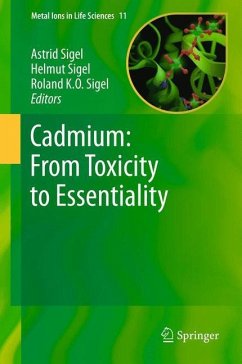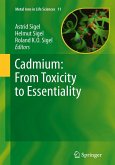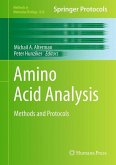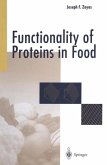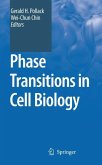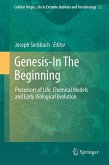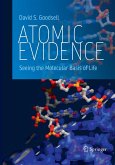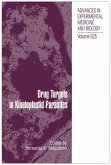Volume 11 provides in an authoritative and timely manner in 16 stimulating chapters, written by 40 internationally recognized experts from 11 nations, and supported by more than 2600 references, 35 tables, and over 100 illustrations, many in color, a most up-to-date view on the role of cadmium for life, presently a vibrant research area. MILS-11 covers the bioinorganic chemistry of Cd(II), its biogeochemistry, anthropogenic release into the environment, and speciation in the atmosphere, waters, soils, and sediments. The analytical tools for Cd determination, its imaging in cells, and the use of 113Cd NMR to probe Zn(II) and Ca(II) proteins are summarized, as are Cd(II) interactions with nucleotides, nucleic acids, amino acids, and proteins including metallothioneins. The phytoremediation by Cd(II)-accumulating plants, etc., the toxicology of Cd(II), its damage to mammalian organs, and its role as a carcinogen for humans, are highlighted. Cadmium: From Toxicity to Essentiality, MIL the use of Cd(II) in carbonic anhydrase of certain marine phytoplankton species.
Astrid Sigel, Helmut Sigel, and Roland K. O. Sigel have long-standing interests in Biological Inorganic Chemistry. Their research focuses on metal ion interactions with nucleotides and nucleic acids and on related topics. They edited previously 44 volumes in the series Metal Ions in Biological Systems.
Astrid Sigel, Helmut Sigel, and Roland K. O. Sigel have long-standing interests in Biological Inorganic Chemistry. Their research focuses on metal ion interactions with nucleotides and nucleic acids and on related topics. They edited previously 44 volumes in the series Metal Ions in Biological Systems.
From the Reviews:
"This volume follows the high standards set by its predecessors. Its detail and thoroughness make it an excellent resource for research workers already engaged in investigating the biological chemistry of cadmium, and those who may become interested in the subject. This reviewer gives it a strong recommendation" -- John S. Thayer, Coord. Chem. Rev. 257 (2013) 3070
"This volume follows the high standards set by its predecessors. Its detail and thoroughness make it an excellent resource for research workers already engaged in investigating the biological chemistry of cadmium, and those who may become interested in the subject. This reviewer gives it a strong recommendation" -- John S. Thayer, Coord. Chem. Rev. 257 (2013) 3070
"This is a fascinating book that provides an up-to-date review of the very relevant and timely problem of cadmium contamination and toxicity in the environment. ... it will be greatly beneficial for graduate students working on cadmium ecotoxicology. ... it will doubtlessly complement well the knowledge of many researchers and professors." (Michel Lavoie, The Quarterly Review of Biology, Vol. 90 (2), June, 2015)
"The 11th volume in the 'Metals Ions in Life Sciences Series' addresses one imminent challenge of the 21st century, namely the chronic low exposure to cadmium that occurs in a global setting mainly from dietary sources. ... the audience for this volume will certainly be as broad and there will be lots of unknown and essential facts every reader can extract from this compendium. I strongly recommend to collect this volume for your private library." (Nicolai Burzlaff, Inorganica Chimica Acta, Vol. 421, 2014)
"The chapters in this book are written authoritatively, will stimulate further research in a variety of disciplines, and be widely consulted. This series is a must for bioinorganic chemists, for inorganic biochemists, and of course toxicologists and indeed all interested in the role of metals in biology"
- Peter J Sadler, J. Inorg. Biochem. 129 (2013) 173
"This volume follows the high standards set by its predecessors. Its detail and thoroughness make it an excellent resource for research workers already engaged in investigating the biological chemistry of cadmium, and those who may become interested in the subject. This reviewer gives it a strong recommendation"
- John S. Thayer, Coord. Chem. Rev. 257 (2013) 3070
"The 11th volume in the 'Metals Ions in Life Sciences Series' addresses one imminent challenge of the 21st century, namely the chronic low exposure to cadmium that occurs in a global setting mainly from dietary sources. ... the audience for this volume will certainly be as broad and there will be lots of unknown and essential facts every reader can extract from this compendium. I strongly recommend to collect this volume for your private library." (Nicolai Burzlaff, Inorganica Chimica Acta, Vol. 421, 2014)
"The chapters in this book are written authoritatively, will stimulate further research in a variety of disciplines, and be widely consulted. This series is a must for bioinorganic chemists, for inorganic biochemists, and of course toxicologists and indeed all interested in the role of metals in biology"
- Peter J Sadler, J. Inorg. Biochem. 129 (2013) 173
"This volume follows the high standards set by its predecessors. Its detail and thoroughness make it an excellent resource for research workers already engaged in investigating the biological chemistry of cadmium, and those who may become interested in the subject. This reviewer gives it a strong recommendation"
- John S. Thayer, Coord. Chem. Rev. 257 (2013) 3070

